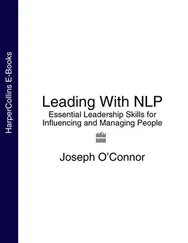John Gray - Children Are from Heaven - Positive Parenting Skills for Raising Cooperative, Confident, and Compassionate Children
Здесь есть возможность читать онлайн «John Gray - Children Are from Heaven - Positive Parenting Skills for Raising Cooperative, Confident, and Compassionate Children» весь текст электронной книги совершенно бесплатно (целиком полную версию без сокращений). В некоторых случаях можно слушать аудио, скачать через торрент в формате fb2 и присутствует краткое содержание. Год выпуска: 1999, ISBN: 1999, Издательство: HarperCollins e-books, Жанр: psy_childs, sci_pedagogy, Психология, на английском языке. Описание произведения, (предисловие) а так же отзывы посетителей доступны на портале библиотеки ЛибКат.
- Название:Children Are from Heaven: Positive Parenting Skills for Raising Cooperative, Confident, and Compassionate Children
- Автор:
- Издательство:HarperCollins e-books
- Жанр:
- Год:1999
- ISBN:978-0-06-133886-1
- Рейтинг книги:4 / 5. Голосов: 1
-
Избранное:Добавить в избранное
- Отзывы:
-
Ваша оценка:
- 80
- 1
- 2
- 3
- 4
- 5
Children Are from Heaven: Positive Parenting Skills for Raising Cooperative, Confident, and Compassionate Children: краткое содержание, описание и аннотация
Предлагаем к чтению аннотацию, описание, краткое содержание или предисловие (зависит от того, что написал сам автор книги «Children Are from Heaven: Positive Parenting Skills for Raising Cooperative, Confident, and Compassionate Children»). Если вы не нашли необходимую информацию о книге — напишите в комментариях, мы постараемся отыскать её.
Children Are from Heaven: Positive Parenting Skills for Raising Cooperative, Confident, and Compassionate Children — читать онлайн бесплатно полную книгу (весь текст) целиком
Ниже представлен текст книги, разбитый по страницам. Система сохранения места последней прочитанной страницы, позволяет с удобством читать онлайн бесплатно книгу «Children Are from Heaven: Positive Parenting Skills for Raising Cooperative, Confident, and Compassionate Children», без необходимости каждый раз заново искать на чём Вы остановились. Поставьте закладку, и сможете в любой момент перейти на страницу, на которой закончили чтение.
Интервал:
Закладка:
Remember God makes children little so you
can pick them up and put them in a time out.
Although it is fine to express negative emotions, it is not acceptable to act them out or express them anywhere and in any situation. It is appropriate to express negative emotions when a parent can and is willing to listen or during a time out. Gradually children learn to regulate their need to express at times when parents can listen.
With regular time outs from two to nine years old, children will gradually learn how to regulate when and how to communicate negative feelings. Though this may seem like a long wait, it is not. Most adults who come for counseling (and many more who don’t) have still not learned how to manage emotions successfully.
To regulate children’s tantrums, a parent needs to give regular time outs. If a parent doesn’t give enough time outs, children inevitably will act out at times when it is not easy or possible to give a time out. With this awareness of the importance of expressing emotions to release them, parents are more willing to listen to their child’s negative emotions and give regular time outs. They clearly recognize that children need to throw tantrums in the appropriate setting of a time out. They no longer feel the need to placate them to avoid confrontation and tantrums.
When positive parenting skills are used, children learn that it is okay to express negative emotions, but mom and dad are still the bosses. When the parent determines that it is time to finish a negotiation, it is time to stop expressing. If a child can’t stop expressing, then a time out will enable a child to release her feelings behind a door. As we have already explored in Chapter Eight, within a few minutes, a child will express and feel the necessary emotions of anger, sadness, and fear and automatically come back to feeling more in control and cooperative.
COPING WITH LOSS
Children tend to have more intense emotions than adults do, because they do not develop the ability to reason until they are nine years old. They cannot reason away their emotions. If someone is mean to them, they feel temporarily that everyone will always be mean to them, or that they somehow deserve to be treated that way, and they will always be treated that way.
They don’t have the reasoning capacity to realize that one person being mean doesn’t mean everyone will be mean.
They can’t reason that if someone is mean to them it may have nothing to do with them at all. It could be that person is just having a bad day. Since they don’t have the ability to reason, their feelings of loss are much greater.
Often parents unknowingly wound their children by minimizing their feelings of loss. One of the best ways for parents to empathize is simply to accept that when children are upset, there are valid reasons for their upsets from their perspective.
Trying to talk them out of their feelings is not necessary. By simply allowing children to express their emotions, they can feel better and then be receptive to reasonable reassurance.
When children are upset, there are always
valid reasons from their perspective.
Most adults today understand that to cope with a great loss, feelings of anger, sadness, fear, and sorrow are not only natural, but lead us to feeling better. When we don’t get what we want or we lose someone or something special, sometimes we just need to have a good cry. Feeling and then releasing negative emotions helps us to accept life’s limitations. Likewise, to learn to accept the limits their parents impose, children need to have a good tantrum. Regular tantrums are the way young children express and thereby feel their negative emotions.
Eventually, they learn to feel inside without expressing or acting out their negative feelings.
Regular tantrums are normal and natural up to the age of nine. If children do not have the opportunity to throw enough tantrums, instead of outgrowing this phase of development, they continue to throw tantrums for the rest of their lives. Children today are more sensitive than ever and have an even greater need to express feelings. So many of the new problems we witness in children from hyperactivity and violence to low self-esteem and suicide will be solved as children get this support and learn to manage their emotions successfully.
WHY EXPRESSING EMOTION HELPS
The act of expressing negative emotions enables children to feel. Children become aware of their feelings by first expressing negative emotions. Feeling is the ability to know what is going on inside ourselves. Getting in touch with feelings makes us more aware of who we are, what we need, wish, and want. The ability to feel helps us to recognize and respect what others need, wish, and want as well. Listening to our children express negative emotions helps them to develop their ability to feel.
Getting in touch with feelings makes us more
aware of who we are, what we need, wish,
and want.
Creating safe opportunities for children to express and feel emotions of anger, sadness, and fear reconnects our children to their basic inner need for their parents’ love. Suddenly, getting their parents’ love becomes much more important than what they were upset about. When a child throws a huge tantrum because he or she can’t have a cookie, this child has just temporarily forgotten who is the boss and the importance of love over getting a cookie. Supporting children in expressing negative emotions will always bring them back to feeling their need for their parents’ love and a strong desire to cooperate and please their parents.
When children throw tantrums, they have
temporarily forgotten who is the boss and
the importance of being loved.
With an increased awareness of their need for love, suddenly the need for a cookie diminishes, the tantrum dissipates, and the child becomes more cooperative. In this way, children become once again grounded in their true self, which is happy, loving, confident, and peaceful. They are aware once again of their need for their parents’ love and their innate willingness to cooperate and please them. All this comes from creating a safe opportunity for children not to get their way, to throw a tantrum, and not to risk punishment or the loss of love in the process.
Listening with empathy and giving time outs are the most powerful ways a parent can give the message that it is okay to express negative feelings. Even when children resist going into a time out, it is okay. They may get angry and say mean things.
That is okay. A time out is an opportunity for children to resist with all their might and then finally surrender to the parents’ control. It is important for children to know that they are not bad for resisting a time out or for having to take one. It is seen simply a natural part of growing up.
You must make sure that you are not placating a child to avoid a tantrum, otherwise tantrums will happen when you don’t have an opportunity to give your child a time out to deal with his or her feelings. Children need to feel that they are in their parents’ control. When children stop feeling in their parents’ control or sense that their parents can’t control them, they seek control by becoming demanding or by throwing a tantrum.
THE POWER OF EMPATHY
To assist our children in expressing their negative emotions, parents must learn to develop empathy. It is not enough to love our children; we must also be able to communicate that love in meaningful ways. Although love is most important, how we demonstrate our love makes the difference. Communicating empathy is one of the greatest gifts a parent can give.
Empathy draws out children’s negative emotions and actually heals them. Empathy communicates the message that your feelings are valid. Parents are always in a hurry to reassure their children that things are all right. Before children can let that message in, they must first feel heard.
Читать дальшеИнтервал:
Закладка:
Похожие книги на «Children Are from Heaven: Positive Parenting Skills for Raising Cooperative, Confident, and Compassionate Children»
Представляем Вашему вниманию похожие книги на «Children Are from Heaven: Positive Parenting Skills for Raising Cooperative, Confident, and Compassionate Children» списком для выбора. Мы отобрали схожую по названию и смыслу литературу в надежде предоставить читателям больше вариантов отыскать новые, интересные, ещё непрочитанные произведения.
Обсуждение, отзывы о книге «Children Are from Heaven: Positive Parenting Skills for Raising Cooperative, Confident, and Compassionate Children» и просто собственные мнения читателей. Оставьте ваши комментарии, напишите, что Вы думаете о произведении, его смысле или главных героях. Укажите что конкретно понравилось, а что нет, и почему Вы так считаете.












